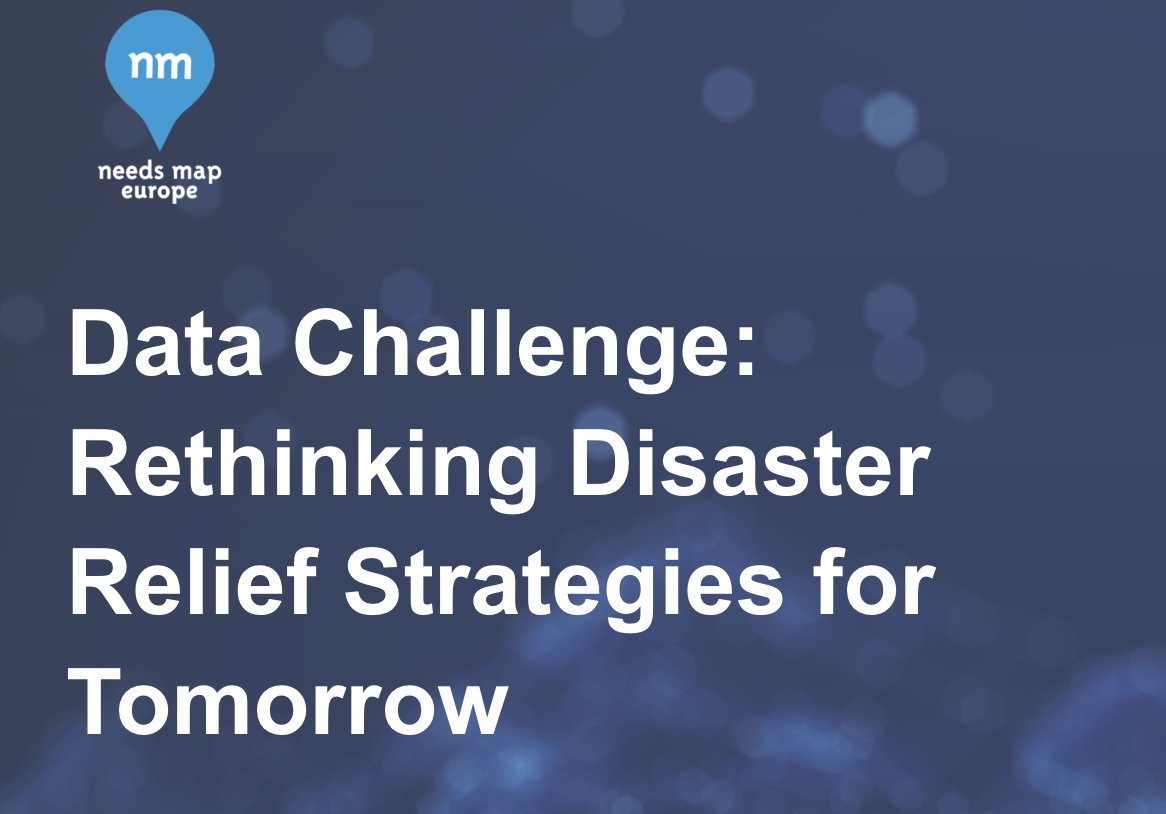
Be Part of the Solution: Needs Map Europe’s Data Challenge for Earthquake Relief
Needs Map Data Challenge
Needs Map Europe aims at pioneering change across societal, economic, and environmental spheres with a human-centric and needs-based approach. Needs Map Europe’s mission is its compass, guiding them in harnessing cutting-edge technology to develop solutions that resonate with human needs and foster global progress. Needs Map’s journey to use technology as a force for good considers every innovation a step towards a more equitable and sustainable future.
In the Data Challenge, Needs Map Europe is looking for creative minds to look at its data in new ways and create innovative solutions. Needs Map and EmlakJet will provide two rich datasets that will give unique insights into rising needs and support structures after a large-scale earthquake to see how this competition and our data can inspire the disaster aid of tomorrow.
Background
In response to the catastrophic earthquakes that hit Turkiye in early 2023, Needs Map and IDEMA launched an innovative relief system. Their novel approach transcends conventional relief frameworks, establishing a responsive and intelligent system that links benefactors with distressed communities. Drawing on their extensive background in disaster relief, they designed several services to meet the urgent situation.
They created an interactive humanitarian network with a bespoke chatbot that engaged nearly 150,000 users. This innovative approach allowed individuals to input their needs for the delivery of personalized aid packages through an integrated needs-verification system. The resulting dataset offers comprehensive insights into the intricacies of supply chain dynamics and the specific requirements of disaster aid responses.
In line with their commitment to aiding Internally Displaced People, the One Rent One Home Campaign aimed to provide alternative accommodation solutions beyond conventional container options. The peer-to-peer matching platform facilitated the sharing of over 4,000 houses nationwide.
Another valuable tool in their disaster response arsenal is the Disaster Response Map, developed to coordinate volunteer efforts in affected areas. With almost 144,000 users, this platform provides critical insights into the dynamics driving catastrophe aid responses.
Through their rich datasets, they have critical insights into the nuances of such a large-scale disaster, providing a foundation for learning and enhancing future disaster relief efforts. Their analysis will spotlight the pivotal role of GIS and social community platforms in times of crisis and aid in crafting adaptive support models for diverse geographical settings.
Challenge Overview
The primary objective of this challenge is to spur researchers to explore novel and creative interpretations of Needs Map’s data. This initiative will be carried out with utmost consideration for ethical and legal norms, safeguarding personal information, and upholding academic rigor in data analysis. An academic board, comprising members from leading international academic institutions, will administer and support this call, which is open to the global scientific community.
Its dataset offers comprehensive insights into multiple dimensions, encompassing precise geographical coordinates, individualized requirements, and demographic profiles of both those in need and their supporters. Specifically, we gathered detailed data concerning the specific material needs of 144.000 individuals impacted by the earthquake. This includes a range of variables such as the status of support, language preference, or the timing of requests.
Through the matchmaking service which created a network of people sharing their houses, Needs Map has unique information on informal accommodation and digital solidarity systems. In addition to the demographics of the 65.000 users, they have a wide range of impact metrics on the number of houses shared and financial support provided. Combined with the data, its partner Emlakjet provides, potential research can investigate how earthquakes may affect the entire housing market of Turkiye.
By integrating this information with additional open data sources, researchers will have a distinctive opportunity for an interdisciplinary analysis that sets out from rich and diverse data. They curated a selection of datasets focused on GIS, population demographics, and humanitarian aid. This non-exhaustive list should be considered an inspiration for future inquiries.
Outcome
Needs Map Europe is exploring the possibility of an edited book or special issue featuring select projects, as well as a joint summary paper of the challenge at the end.
They also invite participants, scholars, and experts in disaster management to the award ceremony in Brussels, emphasizing the importance of collaboration and the impactful potential of such gatherings.
Application and Evaluation Process
The Data Challenge will be organized in different stages:
Interested teams will submit a proposal with a project abstract, rationale and the state of the art, objectives, methodology, work plan, impact, and the researchers involved. For application please click here.
The Scientific Committee will rate the proposals and determine eligible groups and researchers. The proposals will be predominantly evaluated on their potential to enhance preparedness and response strategies for future catastrophic events.
Selected groups and researchers will be granted access to the datasets under a stringent confidentiality agreement. This measure ensures the responsible and ethical use of the data while fostering groundbreaking research and innovation. It is imperative to note that any commercial exploitation of the dataset is expressly forbidden.
Awarded the data, the teams will have approximately five months to carry out their research. Following the submissions, the Programme Committee will recognize and honor the best projects during a final award ceremony scheduled to be held in Brussels.
The overarching goal is not just to advance meaningful research but to ensure that the outcomes have a direct, positive impact on the lives of those affected by the earthquakes.
Call for Abstracts
For the first stage, Needs Map Europe requests interested stakeholders to submit general information about the intended research by filling out the form page under the following link.
Invitation to International Stakeholders
Needs Map Europe extends an invitation to international stakeholders to join the Program Committee, which includes the academic board and various stakeholders. This collaboration will enrich the challenge with diverse perspectives and expertise, fostering a more inclusive and comprehensive approach to understanding and addressing the challenges posed by climate change and natural disasters. If you want to be part of the Program Committee, contact Needs Map Europe with a brief introduction and your expertise via [email protected].
Preliminary Schedule
| Launch Call for Abstracts | 16 February 2024 |
| Deadline of Call for Abstracts | 29 March 2024 |
| Announcement of Selected Projects and Data Access | 30 April 2024 |
| Project Submission Deadline | 16 September 2024 |
| Award Ceremony | 25 October 2024 |
Academic Advisers Committee
- Prof. Tuba Bircan – AIMS Lab, BRISPO, Vrije Universiteit Brussel
- Prof. Feryal Erhun – Judge Business School, Cambridge University
- Prof. Albert Ali Salah – Social and Affective Computing, Utrecht University
- Dr. Stefano Iacus – IQSS, Harvard University
Programme Committee
- Prof. Tuba Bircan – AIMS Lab, BRISPO, Vrije Universiteit Brussel
- Prof. Feryal Erhun – Judge Business School, Cambridge University
- Prof. Albert Ali Salah – Social and Affective Computing, Utrecht University
- Dr. Stefano Iacus – IQSS, Harvard University
- Mr. Tolga Idikat – CEO of EmlakJet
- Dr. Damien Jusselme – IOM GMDAC
- Further members to be confirmed
Contact
For questions, please contact [email protected]
Additional Data Sources
For our Data Challenge, Needs Map Europe is inviting you to submit project proposals by the 29th of March 2024. The main goal of this challenge is to encourage researchers to come up with innovative ways to analyze our data. With the competition, we will inspire disaster aid efforts in the future and have a direct impact on the lives of those affected by earthquakes.
To provide a robust framework, we prepared an non-exhaustive collection of potential data sources that can be combined with our data. Please note that the following list is intended to spur interdisciplinary research approaches. We are more than open to other data sources that will allow us to understand the complexities and intricacies of disaster events.
EM-DAT: International Disasters Database
- EM-DAT is a comprehensive database documenting over 26,000 mass disasters globally since 1900, sourced from UN agencies, NGOs, and other organizations. Managed by the Centre for Research on the Epidemiology of Disasters (CRED), it provides open-access data for non-commercial purposes.
EUROSTAT: European Statistical Office Database
- EUROSTAT is the statistical office of the European Union, responsible for collecting and disseminating data on various aspects of the EU’s economy, society, and environment.
GDELT Project: monitors the world’s news media
- GDELT is a vast and continuously updated database monitoring global news media in multiple languages. Covering over 30 years of georeferenced records and interconnected networks, it represents a transformative approach to analyzing societal-scale data.
GeoFabrik: OpenStreetMap data
- Geo Fabrik and the OpenStreetMap (OSM) project create a global, freely accessible geographic dataset. OSM gathers various information on transportation infrastructure, buildings, natural features, and land through a community-driven approach.
GISCO: Geographic Information System of the Commission
- GISCO is a project of the European Commission to manage a database of core geographic data and provide related services. This includes creating statistical and thematic maps and offering public access to select datasets for non-commercial use.
HDX: Humanitarian Data Exchange
- The HDX facilitates data sharing among organizations during crises, aiming to enhance accessibility and usability for analysis. It plays a crucial role in coordinating humanitarian responses globally through the United Nations Secretariat.
HOT: Humanitarian OpenStreetMap Data
- HOT is a global initiative focusing on humanitarian efforts and community advancement through open-mapping initiatives
IDMC: Internal Displacement Monitoring Centre
- IDMC’s country profile pages offer key information and data on internal displacement in Turkiye.
IKCEST: Disaster Risk Reduction Knowledge Service by UNESCO
- The IKCEST is a global hub that collects and disseminates data, provides knowledge services, and builds capacity for technological application, particularly benefiting developing countries.
IMF: IMF Data Mapper
- The IMF Data Mapper is an online tool provided by the International Monetary Fund (IMF) for visualizing and analyzing economic and financial data worldwide.
OECD: OECD data
- OECD focuses on data analysis, best-practice sharing, and policy advice. It offers precise data on various topics in Turkiye.
TUIK: Turkish Statistical Institute
- TUIK is the official agency responsible for compiling, analyzing, and disseminating statistical information in Turkiye. It collects data on various aspects of the economy, society, or demographics.
World Bank: World Bank Open Data
- The data provided by the World Bank Group offers a wide range of development data. It includes datasets on various topics such as education, health, poverty, economics, and the environment.


